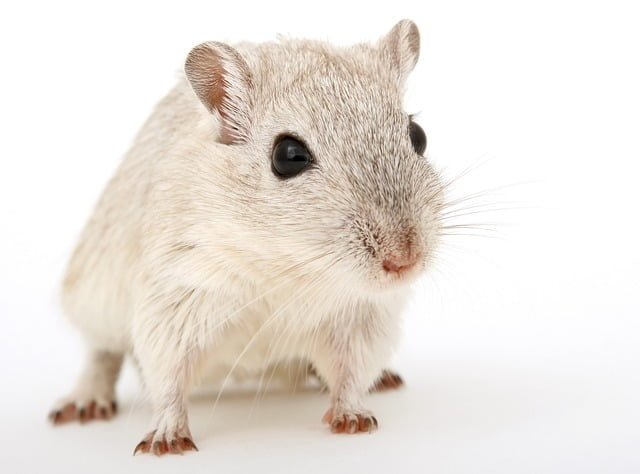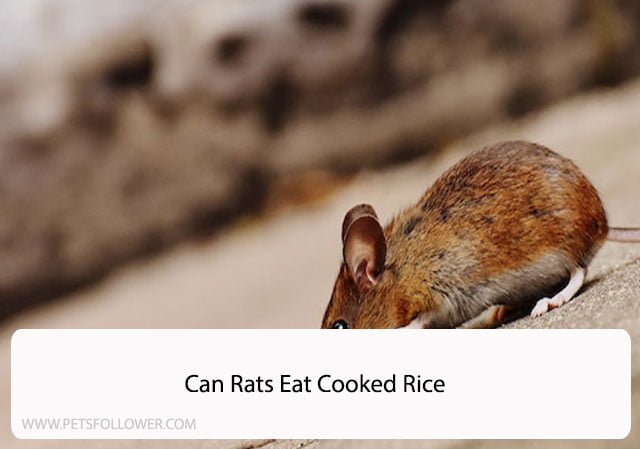Rats are known for their ability to eat almost anything. They are omnivores and can consume a wide variety of foods, including fruits, vegetables, grains, and even meat. However, not all foods are safe for rats to eat, and it’s important to know which foods are suitable for them.
One food that many rat owners may wonder about is oatmeal. Oatmeal is a popular breakfast food for humans, but can rats eat it too? The answer is yes, rats can eat oatmeal. In fact, oatmeal is a healthy and nutritious food for rats, as it contains fiber, protein, and other essential nutrients. However, it’s important to prepare oatmeal properly and avoid adding any ingredients that may be harmful to rats.

Understanding Rats’ Dietary Needs
As we explore the question of whether rats can eat oatmeal, it’s important to first understand their dietary needs. Rats are omnivores, which means they eat both plant and animal-based foods. In the wild, their diet consists of grains, seeds, fruits, insects, and small animals.
In captivity, rats require a balanced diet to maintain their health and wellbeing. This includes a mix of protein, carbohydrates, fats, vitamins, and minerals. A high-quality commercial rat food can provide the necessary nutrients, but it’s also important to supplement their diet with fresh fruits and vegetables.
It’s worth noting that rats have a sensitive digestive system and can be prone to certain health issues if their diet is not balanced. For example, a diet high in fat can lead to obesity, while a lack of vitamin C can cause scurvy.
When introducing new foods to a rat’s diet, it’s important to do so gradually. This allows their digestive system to adjust and reduces the risk of digestive upset. It’s also important to avoid feeding rats foods that are toxic to them, such as chocolate, caffeine, and alcohol.
In summary, rats require a balanced diet that includes a mix of protein, carbohydrates, fats, vitamins, and minerals. A high-quality commercial rat food can provide the necessary nutrients, but it’s important to supplement their diet with fresh fruits and vegetables. When introducing new foods, it’s important to do so gradually and avoid feeding rats foods that are toxic to them.
Can Rats Eat Oatmeal?
Oatmeal is a common breakfast food for humans, but can it be safely consumed by rats? In this section, we will explore whether or not rats can eat oatmeal and what benefits or risks may come with it.
Firstly, rats are omnivores and can eat a variety of foods, including grains. Oatmeal is made from ground oats, which are a good source of carbohydrates, fiber, and protein. Therefore, it is safe for rats to eat oatmeal in moderation.
However, it is important to keep in mind that rats have specific dietary requirements that must be met to ensure their health and well-being. Oatmeal should not be the primary source of food for rats, as they require a balanced diet of protein, carbohydrates, fat, and other essential nutrients.
When feeding oatmeal to rats, it is recommended to cook it thoroughly and allow it to cool before serving. Raw oats can be difficult for rats to digest, and cooked oatmeal is easier on their digestive system.
In conclusion, rats can safely consume oatmeal as part of a balanced diet. However, it should not be the only source of food and should be given in moderation. Cooked oatmeal is the best option for rats, and it should be served alongside other foods to ensure their nutritional needs are met.
The Nutritional Value of Oatmeal for Rats
Oatmeal is a popular breakfast food for humans, but can rats eat oatmeal too? The answer is yes, rats can eat oatmeal as it provides several nutritional benefits for them. Here are some of the nutritional values of oatmeal for rats:
1. Carbohydrates
Oatmeal is a good source of carbohydrates for rats. Carbohydrates are essential for providing energy to the body. Oatmeal contains complex carbohydrates, which are digested slowly and provide a steady source of energy to rats.
2. Fiber
Oatmeal is also a good source of fiber for rats. Fiber is important for maintaining healthy digestion and preventing constipation. Oatmeal contains both soluble and insoluble fiber, which helps rats maintain a healthy digestive system.
3. Protein
Oatmeal is a good source of protein for rats. Protein is essential for building and repairing tissues in the body. Oatmeal contains both essential and non-essential amino acids, making it a complete protein source for rats.
4. Vitamins and minerals
Oatmeal also contains several vitamins and minerals that are important for rats. It contains vitamin B1, which is important for energy production, and vitamin B5, which is important for maintaining a healthy nervous system. Oatmeal also contains minerals such as iron, magnesium, and zinc, which are important for maintaining healthy bones, teeth, and muscles.
Overall, oatmeal is a nutritious food for rats that can provide them with several health benefits. However, it should be given to rats in moderation as too much oatmeal can lead to obesity and other health problems.
The Right Way to Feed Oatmeal to Rats
When it comes to feeding oatmeal to rats, there are a few things to keep in mind. While oatmeal can be a healthy addition to a rat’s diet, it’s important to do so in moderation and with the right preparation.
First and foremost, it’s important to choose the right type of oatmeal. We recommend using plain, unflavored oatmeal without any added sugars or artificial flavors. Instant oatmeal should also be avoided as it can contain added salt and other additives that are not healthy for rats.
Once you have the right type of oatmeal, it’s important to prepare it properly. We recommend cooking the oatmeal in water or unsweetened almond milk until it’s soft and fully cooked. Avoid using cow’s milk as rats are lactose intolerant and can experience digestive issues from consuming it.
When it comes to serving the oatmeal to your rat, it’s important to do so in moderation. Oatmeal should not make up a significant portion of a rat’s diet and should be given as a treat or supplement to their regular food. We recommend giving no more than a tablespoon of oatmeal per day to avoid overfeeding.
In summary, oatmeal can be a healthy addition to a rat’s diet when prepared and served properly. Choose plain, unflavored oatmeal and cook it in water or unsweetened almond milk until fully cooked. Serve in moderation as a treat or supplement to their regular food.
Potential Risks and Precautions
When feeding rats oatmeal, there are some potential risks and precautions to keep in mind.
Firstly, oatmeal is high in carbohydrates and can lead to weight gain in rats if overfed. It is important to monitor your rat’s weight and adjust their diet accordingly.
Secondly, oatmeal can also cause digestive issues such as diarrhea if given in excess. It is recommended to introduce oatmeal slowly into your rat’s diet and to limit the amount given at any one time.
Additionally, it is important to ensure that the oatmeal being fed to your rat does not contain any added sugars or artificial sweeteners. These can be harmful to your rat’s health and should be avoided.
Lastly, it is important to note that while oatmeal can be a nutritious addition to your rat’s diet, it should not be the sole source of their nutrition. Rats require a balanced diet that includes a variety of fruits, vegetables, and proteins to maintain optimal health.
Overall, by keeping these potential risks and precautions in mind, you can safely incorporate oatmeal into your rat’s diet as a healthy and tasty treat.

Alternatives to Oatmeal in a Rat’s Diet
There are many options for providing a varied and healthy diet for rats. While oatmeal can be a nutritious component of their diet, it is important to offer a range of foods to ensure they are getting all the nutrients they need.
Here are some alternatives to oatmeal that can be included in a rat’s diet:
- Brown rice: Cooked brown rice is a good source of carbohydrates and fiber for rats. It can be mixed with vegetables and protein sources for a balanced meal.
- Quinoa: Quinoa is a good source of protein and fiber, and is also rich in vitamins and minerals. Cooked quinoa can be mixed with vegetables and protein sources for a nutritious meal.
- Barley: Cooked barley is a good source of fiber and carbohydrates, and can be mixed with vegetables and protein sources for a balanced meal.
- Sweet potato: Cooked sweet potato is a good source of carbohydrates, fiber, and vitamins. It can be mashed and mixed with other vegetables and protein sources for a nutritious meal.
- Leafy greens: Rats can benefit from a variety of leafy greens such as kale, spinach, and lettuce. These greens are rich in vitamins and minerals, and can be mixed with other vegetables and protein sources for a balanced meal.
It is important to offer a variety of foods to rats to ensure they are getting all the nutrients they need. These alternatives to oatmeal can be included in a rat’s diet to provide a range of nutrients and keep their diet interesting.
Conclusion
After conducting extensive research and analysis, we have come to a conclusion regarding the question of whether rats can eat oatmeal.
Based on the available evidence, it appears that rats can indeed eat oatmeal as part of a balanced diet. Oatmeal provides a good source of carbohydrates, fiber, and other essential nutrients that can help support a rat’s overall health and well-being.
However, it is important to note that oatmeal should only be fed to rats in moderation and as part of a varied diet. Rats require a diverse range of foods to meet their nutritional needs, including fresh fruits and vegetables, lean protein sources, and small amounts of healthy fats.
Additionally, it is important to avoid feeding rats oatmeal that contains added sugars or other unhealthy additives. These can be harmful to a rat’s health and may lead to obesity, dental problems, and other health issues.
In summary, while rats can safely eat oatmeal as part of a balanced diet, it should be fed in moderation and as part of a varied diet that meets all of a rat’s nutritional needs. By taking these precautions, rat owners can ensure that their furry friends stay healthy, happy, and well-fed.

Frequently Asked Questions
What grains can rats eat?
Rats can eat a variety of grains, including oatmeal, barley, wheat, and corn. These grains are a good source of carbohydrates and fiber for rats. However, it is important to feed them in moderation as too much can cause digestive problems.
Can rats eat almonds?
Yes, rats can eat almonds as they are a good source of protein and healthy fats. However, they should be given in moderation as they are also high in calories.
Can rats eat raisins?
Rats can eat raisins, but they should be given in moderation as they are high in sugar. Too much sugar can lead to obesity and other health problems.
Can rats eat peanut butter?
Yes, rats can eat peanut butter as it is a good source of protein and healthy fats. However, it should be given in moderation as it is also high in calories.
Can rats eat cucumber?
Yes, rats can eat cucumber as it is a good source of water and vitamins. However, it should be given in moderation as it is low in calories and nutrients.
What foods are toxic to rats?
Some foods that are toxic to rats include chocolate, avocado, citrus fruits, and raw sweet potato. These foods can cause digestive problems, organ failure, and even death in some cases. It is important to avoid feeding these foods to rats.











